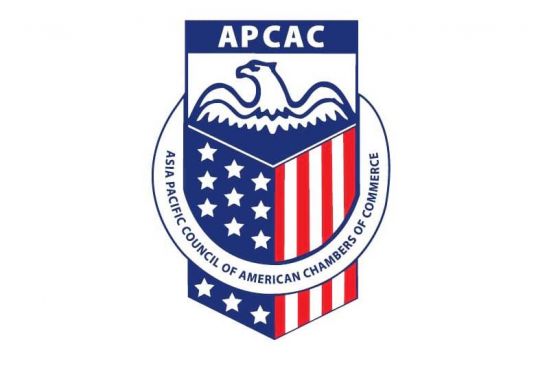Asia Pacific Council of American Chambers of Commerce (APCAC) 2018 business summit has wrapped up with new resolve for business engagement between Asia and the United States, despite recent announcements on international trade and tariffs.
The summit saw 330 leading business, government, diplomatic and academic figures from more than 12 countries across Asia and the US met in Kuala Lumpur Malaysia.
Its chairman, Jackson Cox, said the conference has proved vitally important in creating connections and deepening business engagement in what is the fastest growing region of the world.
“It has been a great week in Kuala Lumpur as we have met to chart a bold future for US business in Asia.
“I am optimistic that the future of American business here will remain strong and I will be forever grateful to the hosts for putting together such a successful event” said Cox.
Siobhan Das, summit organiser and executive director of the American Malaysian Chamber of Commerce said, she was particularly encouraged by the address of Malaysia’s minister for International Trade and Industry, Datuk Seri Mustapa bin Mohamed.
“The Minister acknowledged the important contribution US businesses have made to Malaysia over many years and indicated the government’s commitment to continue that positive engagement.
“This support is one of the reasons that Malaysia is a key destination for US investment,” she said.
Across the Asia Pacific, total US Foreign Direct Investment stood at about USD850 billion at the end of 2016.
Delegates heard from a range of business, government and academic leaders throughout the past two days discussing a range of issues including an in depth look at what the Asian Century means, some of the challenges of Asia for US companies, smart cities, the impact of emerging technologies on the global supply chain, energy challenges, cybersecurity, infrastructure and ASEAN and regional trading frameworks.
APCAC is an association of 29 American Chambers of Commerce from across in the Asia Pacific and representing 15,000 companies and 10 million employees with an estimated USD 620 billion in annual FDI management and more than USD 1 trillion in annual trade.


